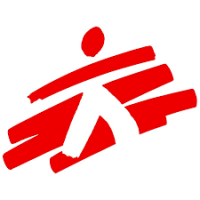
Be at the forefront of evolving trends, new challenges and technologies in medical practice and science and liaise with external clinical, academic and research institutions.
Provide technical capabilities to achieve the medical ambitions of OCG’s 2020-2024 strategic plan, particularly those related to operational policy, innovation and research.
Meet field support needs in their response to clinical and public health challenges, with flexibility and adaptation of priorities in the event of an emergency or difficult conflict situation.
Create integrated work between operations and the medical department through collaborative work platforms, focusing on specific medical operational challenges, standards selection and practice improvement.
The role of the medical department also includes, in conjunction with other departments involved, an essential role in transmitting knowledge to field medical staff through appropriate training and rapid access to key reference documents/tools, as well as recruitment strategies.
Mission
The general objectives of the MSF OCG epidemiology medical referent are as follows:
- Provide technical and strategic support to operations through the Multi-Purpose Medical Manager (RMP) and, where appropriate, directly to the field regarding urgent or complex technical and clinical issues related to their area;
- Strengthen the skills and competencies of MSF staff through capacity building, content development of training modules, e-briefing and participation in training. This epidemiological capacity aims to improve data collection and analysis and evidence-based decision-making, including operational research in our field projects.
MAIN DUTIES AND RESPONSIBILITIES:
- Be a focal point for all epidemiology, data analysis and operational research issues for a portfolio of MSF missions; have an overview of all epidemiology and operations research activities and proactively monitor and identify emerging topics.
- Support field epidemiologists and epidemiological activity managers in their daily tasks (monitoring, implementation and analysis of surveys, outbreak investigations, analysis of medical data), identify training and support needs, including through direct support during field visits.
- Work closely with the HIS team to support missions in the analysis and interpretation of data and medical indicators.
- Provide epidemiological expertise to support or directly implement cross-sectional surveys and community assessments as part of field projects.
- Provide epidemiological expertise to improve detection, investigation and response to outbreaks, supporting the use, development and maintenance of surveillance systems (e.g. in health facilities, in communities, in the media and in social media) and investigation of outbreaks, using appropriate tools and technologies. These activities are carried out directly in the field, with the assistance of field-based or remote epidemiologists.
- Liaise with the GIS team to maximize the use of mapping where appropriate.
- Support the epidemiological activities of the MSF OCG strategic plan, including MSF OCG operational research activities.
- Support evidence-based decision-making within MSF OCG by using peer-reviewed research and academic connections to inform epidemiological work and colleagues using external resources and innovative technology tools, and disseminating relevant operational research in the field.
- Prepare or support the writing of manuscripts for publications. Present data at scientific conferences or assist field or headquarters staff in doing so.
- Support and mentor epidemiologists in the field, including conducting field visits to supervise and advise field staff on epidemiological activities.
- Provide expert advice and technical support to colleagues in the OCG Medical Department and other MSF departments (e.g. Operations) on interdisciplinary issues regarding epidemiology to improve program quality.
- Develop and facilitate epidemiology training for field staff through in-house and intersection courses and remote and in-field coaching, and ensure knowledge transfer on new material.
- Build and maintain networks within MSF and with relevant external institutions and specialists in order to form collaborations and exchange knowledge.
- Represent MSF within the academic and public health community, as well as to media, businesses and supporters as appropriate.
POSITION SPECIFIC RESPONSIBILITIES:
- Focal point for all questions relating to epidemiology, data analysis and operational research for certain cells and/or countries. The portfolio may change depending on the overall needs and workload of the Epi/OR team.
- Participates in regional discussions and reflections organized by MSF in Dakar (Dakar medical platform, operational units or Dakar office).
- Establish and maintain good collaboration with other regional epidemiologists and participate in the regional surveillance initiative.
- Establish and maintain relevant external contacts in Dakar and the region.
Professional skills
Formation
- Diploma in epidemiology (master or doctorate)
- Medical, paramedical or public health training would be an asset.
Experience
- Practical experience in field epidemiology in emergency situations (Minimum of two years of work experience)
- Experience with MSF/Epicentre or similar medical organization.
- Experience in applied epidemiology in developing countries, investigations, epidemic control and surveillance.
- Relevant travel or work experience in contexts where MSF works
- Skills and proven experience supporting the use of data in decision-making and developing data literacy in others.
LANGUAGES
- Fluency in French and English (oral and written).
- Spanish or Arabic would be an asset.
Required qualities
- Use of statistical tools (STATA, R or similar).
- Ability to analyze and interpret medical data.
- Understanding of medical humanitarian work as it relates to medical-technical and political dimensions.
- Strong interpersonal skills with the willingness and ability to communicate effectively with senior operational management, national authorities and other international organizations.
- Ability to analyze medical and structural issues.
- Excellent writing skills.
- Good stress management.
- Coaching, communication and interpersonal skills.
Job specifics
Department: Medical
Schedule: Full time; 40 hours per week
Reports to: Operations Research Coordinator
Location: Dakar
Duration of the investigation: Indefinite duration (3 years, renewable once)
Type de contratCDD
Contract duration 36 months
**Salary (€)**XXX

